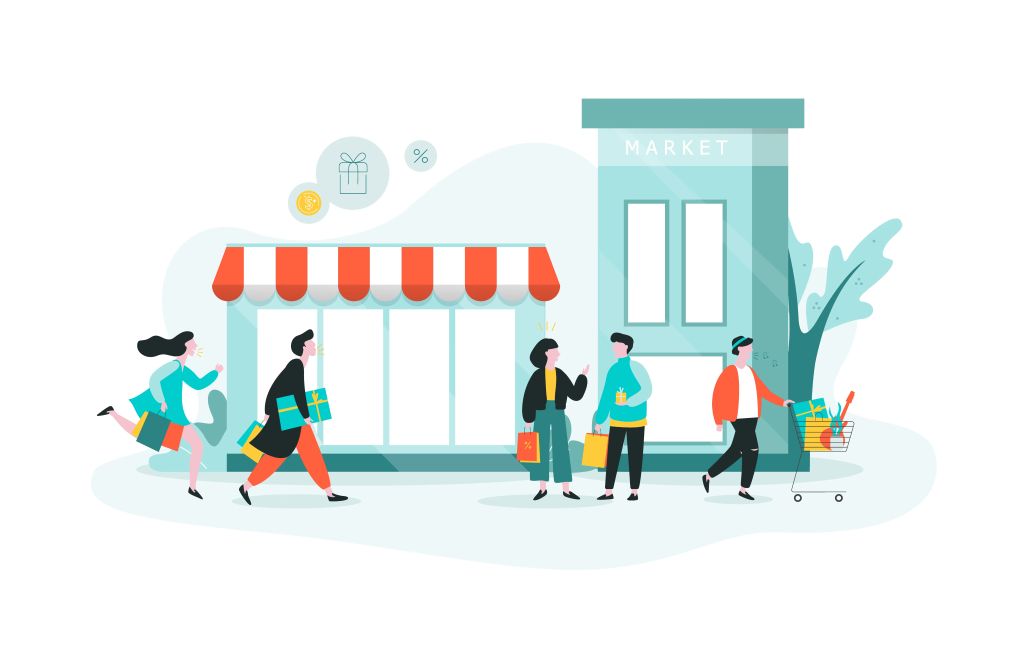The retail sector is one of the fastest-moving industries in the world. Customer expectations shift overnight, product launches happen in weeks, and seasonal demands can put enormous pressure on employees to stay updated. In this environment, relying on traditional training methods is no longer enough. Retail employees need access to learning that is fast, flexible, and engaging—training that keeps them sharp on product knowledge, customer service, and compliance standards. This is where a Learning Management System (LMS for retail) becomes a game-changer.
An LMS allows retailers to centralize all training efforts, from onboarding new hires to upskilling existing staff, in a consistent and scalable way. Whether it’s rolling out new product details to hundreds of stores at once or ensuring compliance training is completed across multiple regions, the LMS makes delivery seamless and trackable. By combining interactive content, mobile-friendly learning, and real-time updates, it ensures employees are not just trained but truly prepared to deliver outstanding customer experiences.
At a time when competition is fiercer than ever, the right retail training platform doesn’t just educate employees—it empowers them. Intelligent solutions like Calibr Learn go a step further by using AI-powered personalized learning, adaptive recommendations, and mobile access. This means every employee, from store associates to managers, gets training that fits their role, schedule, and learning style. For retailers, this translates into faster onboarding, more confident employees, stronger sales performance, and ultimately, happier customers.
Ready to transform retail training with Calibr?
Empower your employees with AI-driven, personalized learning that fits their role, schedule, and pace.
Learn more or contact us today to get started

LMS: Top 5 Retail Benefits
Understanding the benefits of LMS can help retailers reduce costs, improve employee performance, and standardize learning across all locations
1. Streamlined Retail Employee Training
Retail businesses face some of the highest employee turnover rates globally. Constantly replacing and retraining staff is costly and time-consuming. This makes efficient onboarding and upskilling critical for long-term success.
An LMS for retail simplifies this process by offering standardized, on-demand training modules. Instead of conducting repetitive classroom sessions, managers can assign digital onboarding courses to every new hire. Modern LMS for retail business solutions make it easy to manage learning across multiple stores efficiently. This ensures that all employees—whether in flagship stores or smaller outlets—receive consistent training, reducing the risk of knowledge gaps.
Platforms like Calibr’s Employee Onboarding solution make this even easier. New hires can follow structured, role-based learning paths that speed up ramp-up time and improve confidence on the job. Add to that Calibr’s Microlearning features, where lessons are delivered in short, digestible modules, and you have a training system that works perfectly for busy store employees balancing customer interactions, merchandising, and operational tasks. This approach improves knowledge retention and ensures staff are job-ready much faster.
2. Enhanced Sales Performance with Role-Based Learning
Sales associates are the direct link between the brand and customers. Their ability to explain product features, answer questions, and guide purchases directly impacts sales.
An LMS for retail training helps businesses create sales-focused learning paths tailored to different roles. For example, store associates might need deep product knowledge and upselling techniques, while managers might require training in leadership and inventory management. With a retail training platform like Calibr’s Sales Training solution, businesses can integrate gamification, simulations, and AI-powered recommendations to boost learning engagement.
By gamifying the process—adding leaderboards, points, and rewards—sales staff feel motivated to complete training and perform better. Role-play simulations further allow employees to practice customer interactions in a risk-free environment. This ensures that when a new product line is launched or a sales campaign is rolled out, employees are confident and well-prepared to deliver excellent customer experiences. Moreover, this highlights the benefits of an LMS, as it helps employees apply learning in real-world scenarios and achieve better sales outcomes
3. Consistent Compliance and Policy Training
Retailers often operate across multiple locations, sometimes in different regions or countries, where rules and compliance requirements vary. From workplace safety and harassment prevention to data privacy and handling sensitive customer information, compliance is non-negotiable. Failure to follow regulations can be costly—non-compliance costs businesses an average of $14.8 million annually (source).
An LMS retail solution makes compliance training much easier to manage. Managers can assign training modules to employees across multiple stores, monitor completion rates in real time, and even issue certifications automatically. This removes the burden of manually tracking compliance and reduces the risk of penalties.
Calibr’s Compliance Training module is designed to ensure retail staff always have access to the latest regulations and company policies. Its SCORM compliance feature ensures compatibility with standard e-learning formats, making it easy to update and distribute training content. For retailers, this means confidence that every store employee—whether in sales, customer service, or back-office operations—is trained consistently and up-to-date with regulations.
4. Improved Employee Engagement and Retention
The retail industry struggles with turnover, often due to limited career development opportunities. Studies show that engaged employees are 87% less likely to leave their jobs (source). For retailers, keeping employees engaged is essential—not only to reduce hiring costs but also to deliver consistent customer service.
The benefits of an LMS extend beyond skill-building. A modern retail training platform fosters a culture of continuous growth and makes learning enjoyable. Features such as Calibr’s Gamification (points, badges, leaderboards) transform training into an interactive experience, while Collaborative Learning allows employees to share knowledge, discuss case studies, and learn from each other.
When employees see training as something engaging and valuable, rather than just a compliance checkbox, they become more motivated. This leads to improved morale, better teamwork, and higher retention rates. Ultimately, customers benefit too—because engaged employees provide more attentive and personalized service.
5. Real-Time Analytics for Smarter Decision-Making
Delivering training is only one part of the equation—measuring its impact is equally important. Without insights, managers cannot know whether training is effective or if employees are actually applying their knowledge in real-world scenarios. Studies reveal that 90% of organizations investing in learning analytics report improved training ROI (source).
With Calibr’s Real-time Analytics, retail leaders can track employee progress, measure engagement levels, and identify skill gaps instantly. For example, if one store is underperforming in upselling, managers can quickly identify the issue and assign targeted training. Personalized Learning Paths then ensure each employee receives training tailored to their needs, rather than a generic one-size-fits-all approach.
This data-driven method enables smarter decision-making. Instead of guessing which areas to improve, managers have clear visibility into employee performance. Over time, this leads to better-trained employees, stronger sales numbers, and an overall improvement in customer satisfaction.
For more information on the full implementation and strategic use of an LMS in retail, read our full blog on LMS for Retail: A Complete Guide to Transforming Employee Training.
Conclusion: Future-Proofing Retail Training
Retail is no longer just about putting products on shelves—it’s about creating meaningful experiences that keep customers coming back. Today’s employees are the brand ambassadors who make or break those experiences. To prepare them for the fast-changing demands of the industry, companies need tools that go beyond traditional training. The benefits of LMS extend beyond convenience—they create measurable improvements in sales, engagement, and compliance
With an LMS for retail, businesses gain more than just a digital training system. They gain a competitive edge. Faster onboarding means new hires can start contributing sooner. Improved sales skills translate directly into higher conversion rates and stronger revenues. Consistent compliance ensures every store operates within regulatory frameworks, protecting both the company and its employees. Higher engagement fosters loyalty, reducing costly turnover, while real-time analytics empower managers to make smarter decisions based on data, not guesswork. Together, these factors build a retail workforce that is skilled, confident, and customer-focused.Thus, by leveraging the benefits of an LMS, retailers can ensure their workforce is skilled, confident, and ready for evolving business demands.
Platforms like Calibr bring all these benefits together by combining innovation with practical features designed specifically for modern retail.Adopting an LMS for retail business ensures that every store employee, from associates to managers, receives consistent, high-quality learning experiences. As one of the best retail LMS solutions, Calibr offers AI-powered personalization, microlearning modules, gamification, mobile-first design, and actionable insights—all tailored to meet the needs of retail store employees and managers alike.
Ready to transform your retail training and future-proof your workforce?
Sign up for a 14-day free trial or Contact us and Schedule a demo to get started


